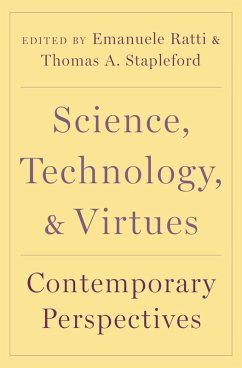Virtues have become a valuable and relevant resource for understanding modern science and technology. Scientific practice requires not only following prescribed rules but also cultivating judgment, building mental habits, and developing proper emotional responses. The rich philosophical traditions around virtue can provide key insights into scientific research, including understanding how daily practice shapes scientists themselves and how ethical dilemmas created by modern scientific research and technology should be navigated.
Science, Technology, and Virtues gathers both new and eminent scholars to show how concepts of virtue can help us better understand, construct, and use the products of modern science and technology. Contributors draw from examples across philosophy, history, sociology, political science, and engineering to explore how virtue theory can help orient science and technology towards the pursuit of the good life. Split into four major sections, this volume covers virtues in science, technology, epistemology, and research ethics, with individual chapters discussing applications of virtues to scientific practice, the influence of virtue ethics on socially responsible research, and the concept of "failing well" within the scientific community. Rather than offer easy solutions, the essays in this volume instead illustrate how virtue concepts can provide a productive and illuminating perspective on two phenomena at the core of modern life. Fresh and thought-provoking,
Science, Technology, and Virtues presents a pluralistic set of scholarship to show how virtue concepts can enrich our understanding of scientific research, guide the design and use of new technologies, and shape how we envision future scientists, engineers, consumers, and citizens.
Dieser Download kann aus rechtlichen Gründen nur mit Rechnungsadresse in A, B, BG, CY, CZ, D, DK, EW, E, FIN, F, GR, HR, H, IRL, I, LT, L, LR, M, NL, PL, P, R, S, SLO, SK ausgeliefert werden.









